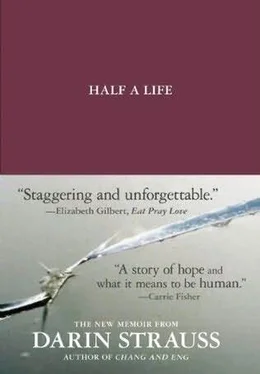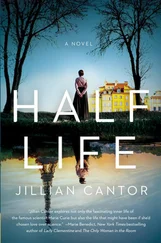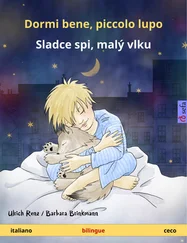“I don’t know,” I said.
Over and again, question after question. “Don’t know. Not sure.” I looked at my father for solace. This wasn’t anything we’d expected. All he could do was watch me. Mr. Zilke, of course (there was a great deal of intensity at the table), saw that I was looking to my father.
“I don’t know,” I said, each time more softly than the last. “I don’t know.”
“What do you know?”
Then the Zilkes’ lawyer inhaled through his nose and shut his eyes, slowly. A man visibly calming himself.
He came back from his settle-down place and continued. His style was a kind of word fog in which I couldn’t make out any detail, only the growing sense of being lost and wrong: “What’s the exact amount of seconds, son, between when you saw her and you killed her with your car? Because, right now, it doesn’t seem like, with your answers — or lack of answers — there’s any, shall we say, it’s just that you strike me as someone who might be telling less than the fullest extent of the truth. Do you follow me?”
He searched my eyes, and for a moment, I got to search his. I made out, to my surprise, what looked like regret. Something shaky in the face, there in the spry brows — a remorse about the power and edge that experience has over anxiety and weakness. (This was my thinking then.) “Take your time, son,” he said.
In any court setting, where people have nothing to do but lean forward and listen, silences feel drawn-out. They convey an impression of somebody using the shade of a few extra moments to put together a hasty lie. I wasn’t going to lie, though; I just didn’t want to give the only answer I had. But now their lawyer’s eyebrows hiked up as he waited for me to answer. My lawyer’s did, too. I probably had no choice but to hand over my one skimpy truth. Even Dad’s eyebrows were starting to pyramid. It seemed so artificial, somehow, that I couldn’t simply step out from behind this table and head off into the telephone-pole orchard out there on Franklin Avenue.
“I don’t know how many, exactly,” I said. My face and the room seemed to be the same smarting temperature. Someone’s chair leg scraped against the floor. And the Zilkes’ lawyer, resetting himself, sat waiting for more.
“One second?” I said — a guessing game. “Half of one?” I was lucky I didn’t just fall thwap onto the floor.
“So which, then?” the lawyer said. “One second or half? We’re all here to listen to what you have to say.”
Mr. Zilke, meanwhile, was bashful with his gaze until it failed him; he turned from the questioning and kept his eyes on his watch, on his cuffs. (Mrs. Zilke, like my own mother, wasn’t there.)
More questions for me. Were you drunk? The Zilkes’ lawyer had the structural design of a Saint Bernard, sags and weight and flaccidity. Can you prove you weren’t drunk?
(He’d later ask a policeman who’d been at the accident similar questions. Q: “How can you be sure young Mr. Strauss wasn’t drunk?” A: “I’ve been a police officer for years. He wasn’t drunk. I could tell.” Q: “Were you derelict in your duty in not giving him a breathalyzer?” Etc.)
“Mr. Vancini, approach, please,” the judge said, interrupting. Robed in the prestige of the state, he was the one relaxed figure in the room. The judge leaned forward to whisper something. Without ever having been in a court (or a Special Hearings room), I realized I knew the ins and outs of this place — lawyers approaching the bench; my having made the official promise to tell the truth; direct and cross and redirect examinations — just as everyone in the country did: from TV. Which is to say in my bones.
(Weeks later, when I got to see the court reporter’s transcript, I read what the judge had actually murmured to the Zilkes’ lawyer. “Mr. Vancini,” he had said, “we all know how fond of money you are. If you don’t stop badgering this young man, I will take some money from you, via a fine.”)
During a break, I headed alone down the courthouse hallway to get a Coke. Teenage housewives and their husband-tyrants; a napper hogging the whole bench outside a courtroom; pre-divorce couples irreconciling their differences publicly; facial bruises; some lawyer yelling drill-sergeantly loud commands at his client; a professional witness checking something in a briefcase, preparing to testify for show and profit; teary faces, tattooed faces; a weeping thug and his parents against a wall; crying millionaires; one defendant poking her court-appointed attorney on the lapel. A whole different division of a city had been ousted and massed here. At least that’s how I remember it: the complete anthology of anxieties. And I was here, too, however I looked to these people, holding my plastic Coca-Cola bottle — a kind of affiliation with the bright and normal world — a few inches ahead of my body, like a lantern. All these people: all of our lives were in doubt.
Back in the Special Hearings room, the deposition quickly ran its course. A few more vague yes-or-no questions. Then: all righty, thank you, goodbye. Nothing would be decided this morning.
On his way to the door, Dad stopped in front of Celine’s father. (They’d met only at Celine’s funeral.) I was afraid for a moment that Dad intended to punch him.
“He’s a prince, this guy,” Dad told our insurance company’s lawyer, and smiled warmly.
This was not sarcasm. Dad grinned and patted Mr. Zilke’s shoulder. This was nervousness, forced joviality. Emotion pressed a dark horizontal wrinkle across Mr. Zilke’s scalp. But with forced appreciation, Mr. Zilke said hi and thank you. It was all very strange. Mr. Zilke’s eyes were dry. He was taller than I’d remembered. The Zilkes’ lawyer turned to me with his fat, meaningless face. Everyone left.
Driving home, I asked Dad: “So, listen, why’d you do that? I mean, a prince ?”
“I don’t know,” Dad said. His hands tightened on the steering wheel. Dad couldn’t tamp down, or maybe didn’t even know about, his smile. “I guess I didn’t have any idea what to say. It was like, I almost forgot he was suing us for a second. I remembered how nice he’d been at the funeral.”
Being friendly to Mr. Zilke felt, somehow, very natural. Back at college, I needed to act that way, too. My thoughts about Celine now were about honoring her memory, however privately. Every time I thought of Celine’s parents blaming me for the death they’d promised to absolve me of, I felt tender toward them.
But when I speculated that maybe they didn’t blame me, but instead were just trying to wreck my life for money — or that maybe they were simply and totally ruined, which made them not even quite know what they were doing — at those times I’d orbit around my sadness and guilt, and agonize. Mr. Zilke had brought me iced tea in a room where — for the first time, among adults — I knew I was hated.
I did not blame them for suing me. I pictured the Zilkes standing over Celine in some awful white hospital room just before their daughter died. The father with the terrible pinch of loss in his mouth, trying to will Celine to wake up, to somehow go back and say Be careful and Look both ways . The mother gently squeezing the bumps of Celine’s feet under hospital covers. Or wanting to get up from the bedside chair and stretch but being afraid to move. I saw her parents conferring together over the bleakest decisions, signing forms, crying, working not to look upset — because wasn’t there maybe an off chance that Celine could perceive their sadness, or their fear? Mr. Zilke palming smooth the rumples in his dying daughter’s bedding. How could anyone blame these people for anything?
Читать дальше









